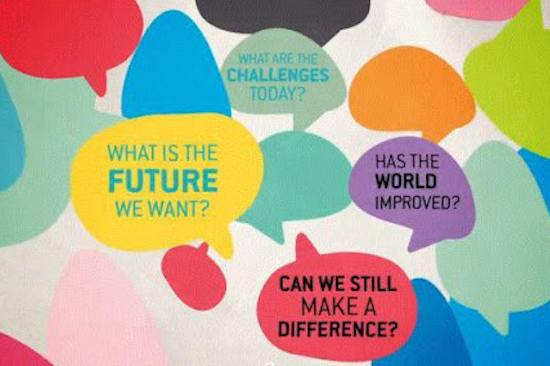What is Sustainability Rio 20 The Future We Want
Post on: 16 Март, 2015 No Comment

What is Sustainability?
The world’s population of 7 billion is likely to increase to 9 billion by 2050. The demand for diminishing natural resources is growing. Income gaps are widening. Sustainability calls for a decent standard of living for everyone today without compromising the needs of future generations.
This means finding better ways of doing things. Such as:
- How can we help people move out of poverty and get good jobs. while protecting the environment?
- How can we provide access to clean energy for everyone, and make sure that the energy we produce doesn’t contribute to climate change?
- How can we make sure that everyone can get the water. food and nutrition they need?
- How can we shape our cities so that everyone can enjoy a decent quality of life?
- How can we build better transportation systems that allow us all to get where we want to go, without causing too much congestion and pollution?
- How can we make sure that our oceans are healthy and that marine life is not threatened by pollution and climate change?
- How can we make sure that our communities are resilient in the face of natural disasters ?
In-depth resources from the UN
Finding sustainable solutions is essential to the UN’s work. Here you will find some of the latest thinking, policy analysis and commentary on sustainability by the UN.
Human Development Report 2011
Sustainability is inextricably linked to basic questions of equity — that is, fairness, social justice and greater access to a better quality of life, according to the UN Development Programme’s Human Development Report 2011. The report calls for urgent action to slow climate change, prevent further degradation and reduce inequalities, as environmental deterioration threatens to reverse recent progress in human development for the world’s poorest.
Some of the report’s findings:
- Over the last 30 years, the countries in the lowest 25 per cent of the Human Development Index rankings improved their scores by a striking 82 per cent, twice the global average.
- If this pace of improvement continues over the next 40 years, most of these countries would achieve standards equal to or better than those now enjoyed by the top 25 per cent.
- But the effects of climate change could derail progress in the world’s least developed places.
- Factoring in the projected effects of climate change on weather, food production and pollution, the index’s average score drops by 8 per cent worldwide from what would otherwise be predicted — and by 12 per cent in sub-Saharan Africa and South Asia.
- A 0.005 per cent tax on foreign exchange trading could raise $40 billion or more every year to fund the fight against climate change and extreme poverty.
- Electricity can be provided to the 1.5 billion people who are now off the power grid in a manner that is both affordable and sustainable, without increasing global carbon emissions by even 1 per cent.
Green Economy Report
The UN Environment Programme’s Green Economy Report demonstrates that green economies are a new engine of growth, generate decent jobs and are vital to eliminating persistent poverty. Some findings:
- Investing just 2 per cent of global GDP (gross domestic product) into ten key sectors — including agriculture, buildings, energy, fisheries, forests, manufacturing, tourism, transport, water and waste management — can kick-start a transition towards a low-carbon, resource-efficient economy.
- Greening the economy can produce higher growth in GDP and GDP per capita than a business-as-usual scenario within 5 to 10 years.
- In a green economy, global demand for energy is projected to be about 40 per cent lower than under a business-as-usual scenario by 2050, thanks to substantial advances in energy efficiency.
- A green investment scenario is projected to reduce energy-related CO2 emissions by about one-third by 2050 compared to current levels.
- In a transition to a green economy, new jobs will be created, which over time exceed the losses in “brown economy” jobs, particularly in the agriculture, buildings, energy, forestry and transport sectors.
- The move towards a green economy is happening on a scale and at a speed never seen before. For 2010, new investments in clean energy were expected to reach a record high of US$180-200 billion, up from US $162 billion in 2009.
- Global investment in renewable energy is increasingly driven by emerging economies (non-OECD countries), whose share in global investment in renewables rose from 29 per cent in 2007 to 40 per cent in 2008, with Brazil, China and India accounting for most of it.
Global Sustainability Report
The Secretary-General’s High-level Global Sustainability Panel Says a future worth choosing must be based on true costs to people and the environment, in its Resilient People, Resilient Planet: A Future Worth Choosing report.
Sustainable Development Knowledge Platform
Sustainable development goes together with allowing people to broadly engage in development policy making. On the Sustainable Development Knowledge Platform you will find some of the latest thinking, policy analysis and commentary on sustainability by the UN. The platform provides in-depth information and knowledge on the United Nations Conference on Sustainable Development (Rio+20) which concluded on 22 June 2012, enabling the site visitors to learn more about commitments made by at Rio+20 to promote sustainable development.














